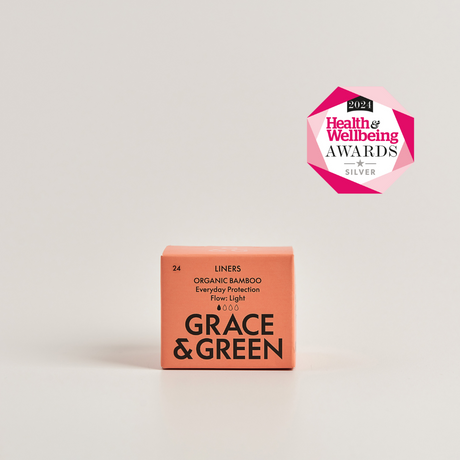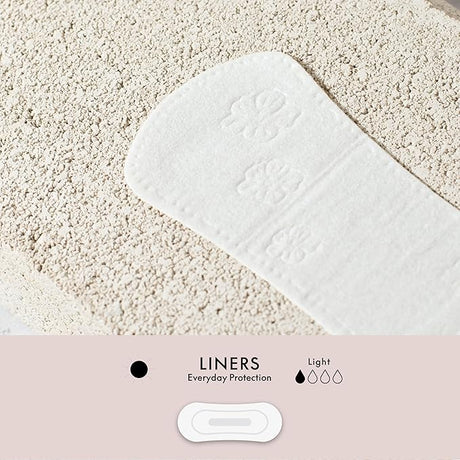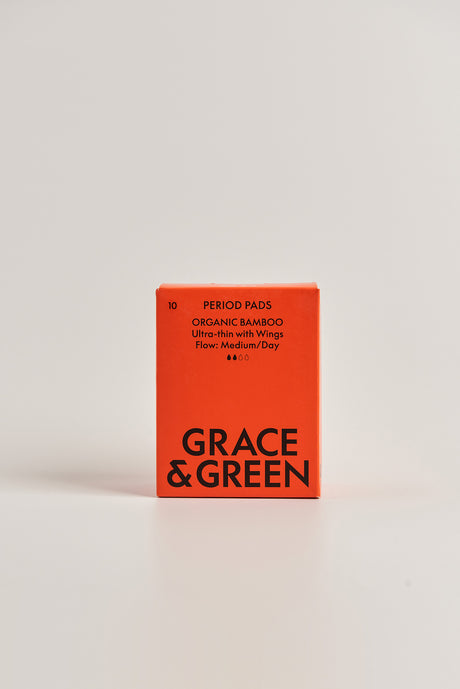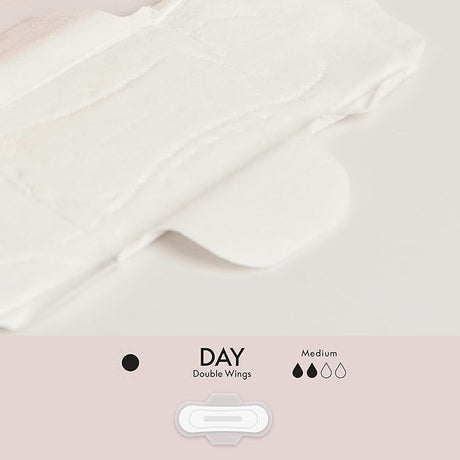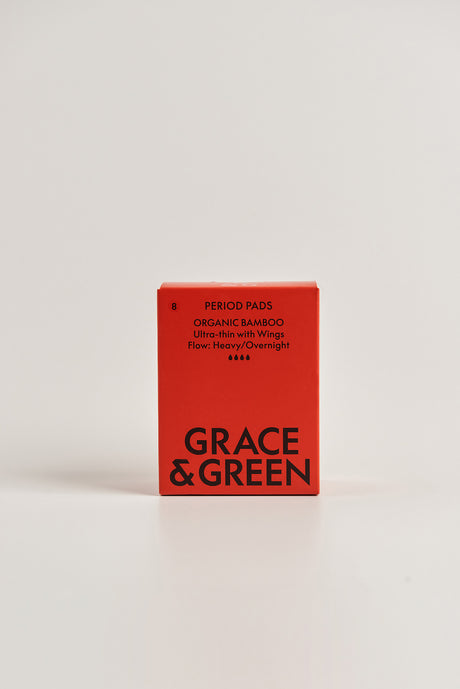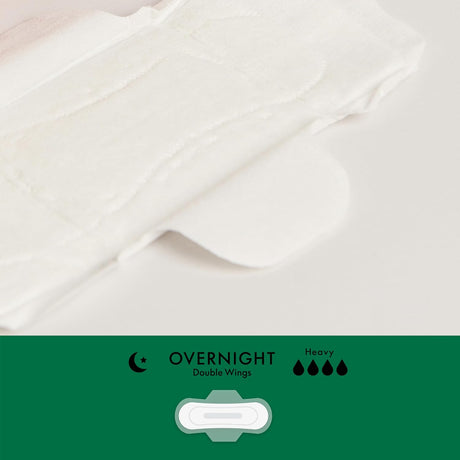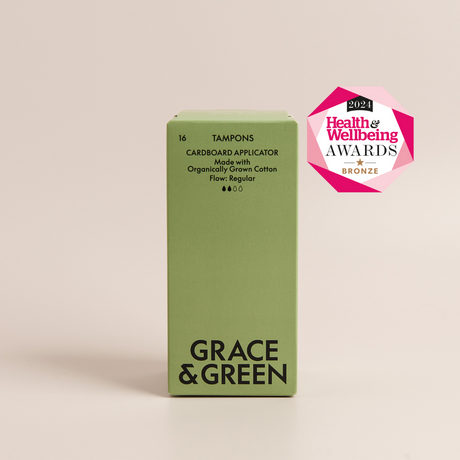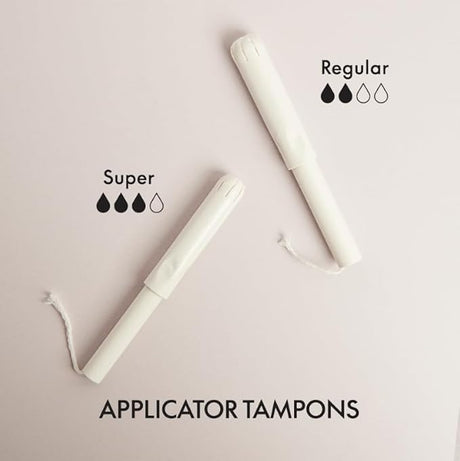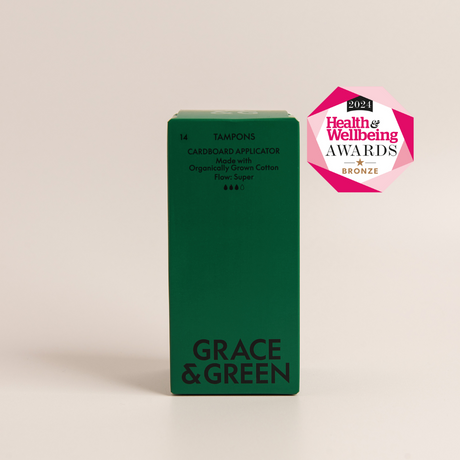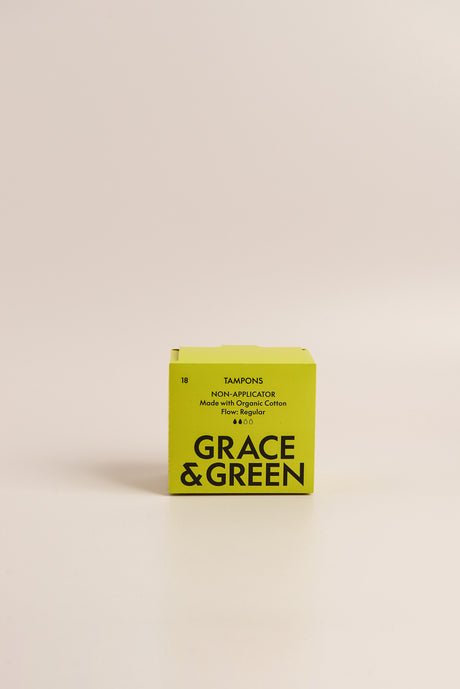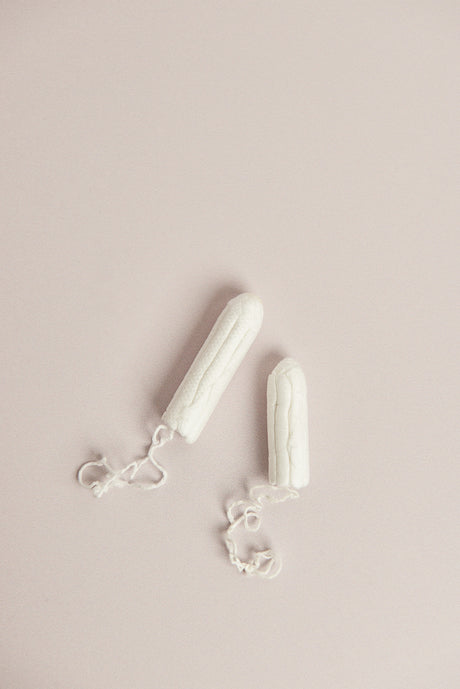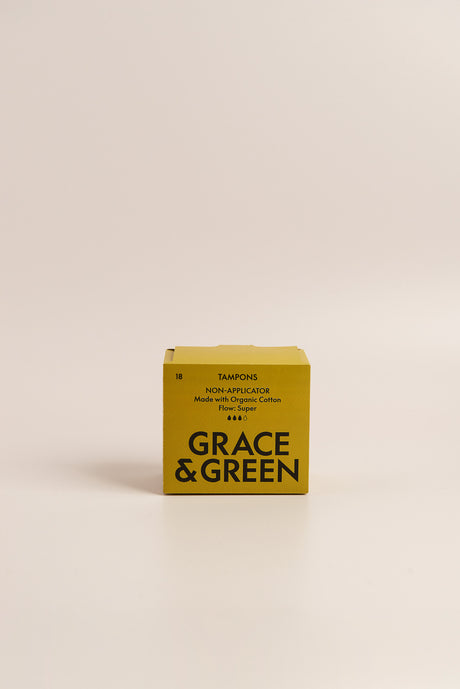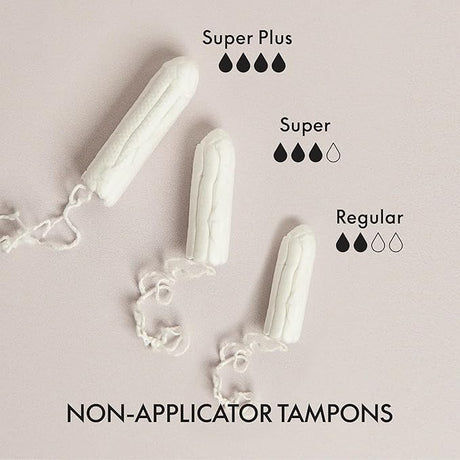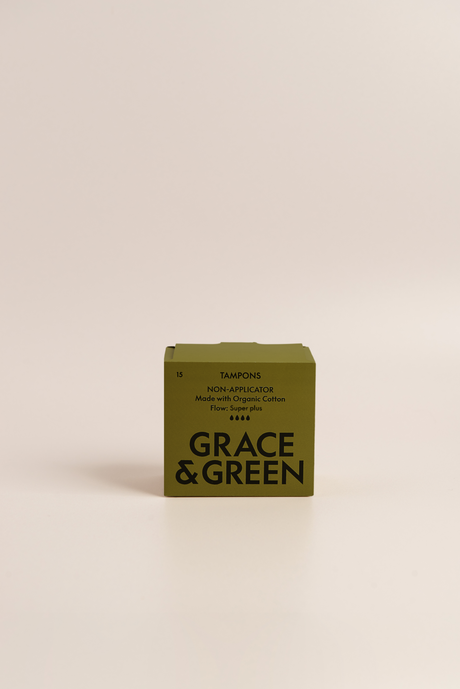The way we talk about periods can greatly impact how people think about them.
At Grace & Green, we’re committed to not using the terms ‘hygiene,’ ‘feminine,’ or ‘sanitary’ when talking about periods. And here’s why:
As a teenager, my friends showed me how to hide tampons and pads in my bra when I had to go to the bathroom at school. Even back then I thought it was kind of ridiculous, but I usually did it anyway. It was embarrassing to have your period, let alone walk around with a tampon or pad so that everyone would know that you were menstruating. You can imagine how uncomfortable it was to stay at someone’s house while I was on my period. I was so ashamed to leave traces of used tampons or pads that I wrapped them in toilet paper and hid them in my bag until I got home. And when I had my period, I called it “time of the month” instead of just saying “I’m on my period”. I remember once saying the word ‘menstruation’ to a friend who responded by literally saying “Ugh, please don’t ever say ‘menstruation’ again, it’s gross”.
But what’s gross about the word ‘menstruation’ and why do we constantly feel like we have to hide our period, which is a natural bodily function?
It starts with the way we talk about periods. In fact, we don’t really talk about ‘periods’ or ‘menstruation’ at all. I recently learned that there are around 5000 ways to say that you’re on your period without saying that you’re on your period. Euphemisms for menstruation have become normalised around the world, which shows how much we make periods taboo. Crazy, right?
In ads, in supermarkets/drugstores, or in public toilets, menstrual products are usually referred to as ‘sanitary towels’, or even worse, ‘feminine hygiene products’. Terms like ‘period’ or ‘menstruation’ seem to be taboo, which reinforces secrecy and shame around menstruation.
But how can we break the taboo and the ongoing cycle of secrecy and misinformation around menstruation?
Stop saying ‘hygiene’ or ‘sanitary’
Because periods aren’t unhygienic or unsanitary! We describe periods so explicitly in terms of hygiene when periods are no more unhygienic than any other bodily function. Terms like ‘sanitary towel/napkin’ or ‘feminine hygiene products’ can imply that periods are dirty. Almost as if we desperately need something ‘hygienic’ to manage our ‘unclean period’. We don’t call toilet paper ‘sanitary wiping paper’ or ‘hygiene paper’ either. When we talk about condoms, we don’t speak of ‘sexual hygiene for men’ but of ‘men’s sexual health’. In my opinion, we should therefore also not speak of ‘menstrual hygiene’ but of ‘menstrual health’.
Stop saying ‘feminine’ or ‘femcare’
What’s a ‘feminine product’ anyway? Is it meant for women or for people who feel ‘feminine’? The term ‘feminine’ is flawed. First of all, not all women menstruate, which doesn’t mean they should feel any less ‘feminine’. Second of all, not all who menstruate are women: transgender, non-binary, non-conforming genders, and people who identify as male can all have periods. “The existence of a period doesn’t make someone any more or less feminine, or any more or less female,” says New York model, actor, artist, and advocate Sawyer DeVuyst, who was the first transgender man to appear in an ad campaign for period products.
For far too long, the language used to describe and discuss periods has been exclusively geared toward cisgender* women. This could make everyone else who menstruates and does not identify as a cis** woman feel excluded from important conversations about their menstrual health.
Oh, and what’s ‘femcare’ anyway? Most big companies make period products that are full of plastic and harmful chemicals. – Doesn’t seem like they really care about the people who use them, or what do you think?
Call them for what they are: menstrual/period products
Why don’t we just call menstrual products ‘menstrual products’ or ‘period products’? After all, these products are for menstruation / periods. Menstrual/Period products have no gender and need no gender because they are simply made for people who menstruate and need them. It’s time to make menstruation more inclusive.
Words are powerful and language matters
Menstruation is important to life on our planet and that’s beautiful. There’s nothing shameful or ‘unhygienic’ about periods because we all wouldn’t be here without them! So it’s about time to stop using euphemisms when we talk about menstruation. And it’s about time to stop claiming that periods are ‘feminine’ because not all women menstruate and not all who menstruate are women. At Grace & Green, our period dignity scheme allows workplaces, public spaces and educational institutes access talks and webinars to start the conversation of accurate and open menstrual education. Including the right terminology to use and ways to start breaking up with our longest relationship: Stigma. Let’s start talking openly about periods. Only this way we can ensure period equity.
*relating to a person whose sense of personal and gender identity corresponds with their birth sex (based on their genitalia)
** short form for cisgender


